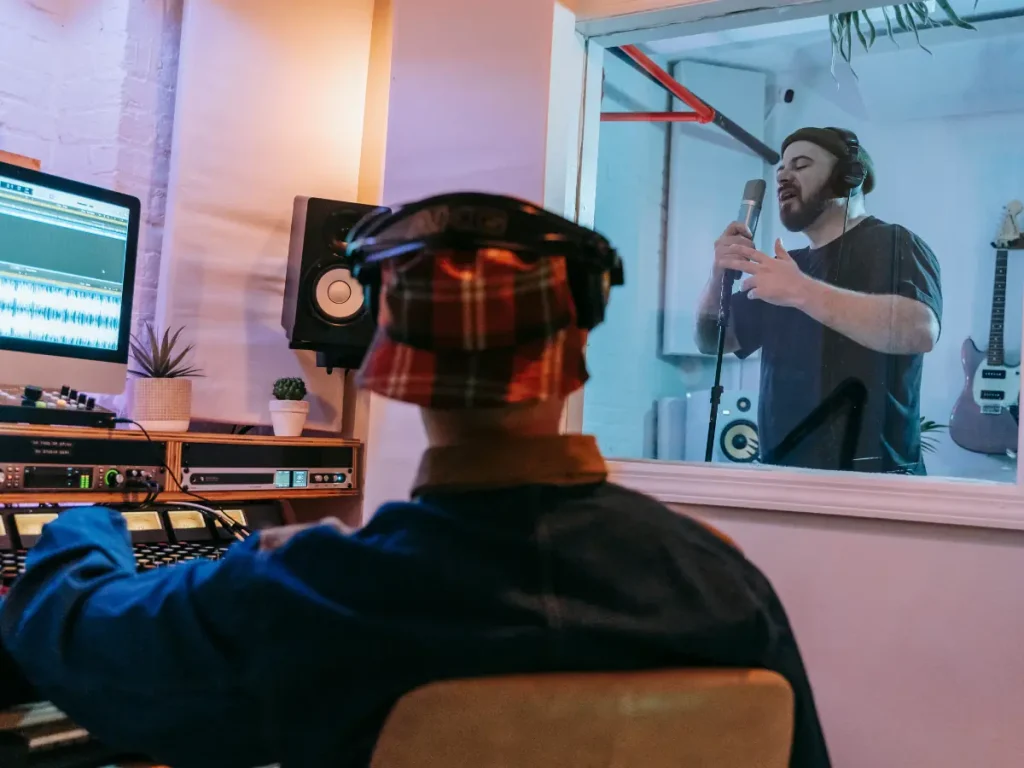FAQs
find answers to questions that guide you through the first
Question For Your First Step into Soundproofing With Us


Discover Our Expertise: Tailored Soundproofing Solutions and Strategies
Frequently Asked Questions About Soundproofing: Everything You Need to Know
Welcome to our Soundproofing FAQs page! Whether you’re looking to reduce noise in your home, office, or recording studio, soundproofing can be a key element in creating a more comfortable and private environment. In this section, we’ve gathered the most common questions asked by our customers to help you better understand the soundproofing process, from choosing the right materials to applying effective techniques. Read on for expert insights into everything from cost-effective DIY methods to professional soundproofing solutions that truly make a difference.
Discover Quick Question Answer
Need to block out noise? Our soundproof solutions are here for you. Say goodbye to disturbances with our expert assistance. We’ve got your peace and quiet covered
What are the best materials for soundproofing a room?
The best materials for soundproofing include:
- Acoustic Panels: Absorb sound waves to minimize echoes and improve room acoustics.
- Mass-Loaded Vinyl (MLV): A dense, flexible material that blocks airborne sound effectively.
- Soundproof Curtains: Heavy, thick curtains that reduce noise penetration through windows.
- Foam Insulation: Reduces sound transmission by filling gaps in walls or ceilings.
- Resilient Channels: Used in construction to decouple sound vibrations from walls or ceilings.
These materials are ideal for home theaters, recording studios, and offices.
How much does it cost to soundproof a room?
The cost of soundproofing a room depends on factors such as room size, the level of soundproofing required, and the materials used. Professional soundproofing typically ranges between $1,000 and $5,000 or more. This can include adding layers of soundproof drywall, installing mass-loaded vinyl, acoustic panels, and sealing gaps with acoustic caulking. Customized solutions for specific applications, such as home theaters, recording studios, or offices, might involve higher costs depending on the complexity of the project. Investing in professional soundproofing ensures effective noise control and long-term benefits in comfort and privacy.
How do I soundproof walls effectively?
Effective wall soundproofing requires a combination of blocking and absorbing noise. Adding a second layer of drywall, coupled with Green Glue (a sound-dampening compound), can significantly reduce vibrations and sound transmission. Acoustic panels are another effective solution, particularly for managing echoes within a room. For an added layer of noise reduction, consider installing mass-loaded vinyl beneath the drywall and sealing all gaps with acoustic caulk. These methods ensure quieter spaces, particularly in noisy urban environments or shared living spaces.
Can I soundproof a room without construction?
Yes, soundproofing a room without construction is entirely possible, making it ideal for renters or temporary setups. Thick rugs or carpets can help reduce impact noise from floors, while soundproof curtains block outdoor noise effectively. To further minimize sound leakage, sealing gaps with weather stripping or adding a door sweep is a cost-effective option. You can also strategically place heavy furniture, such as bookshelves, against walls to absorb sound waves. These solutions are easy to implement and create a noticeable improvement in noise reduction.
What is the difference between soundproofing and acoustic treatment?
Soundproofing and acoustic treatment serve different purposes but often complement one another. Soundproofing focuses on blocking external noises from entering or leaving a space, using materials like mass-loaded vinyl or additional drywall layers. In contrast, acoustic treatment improves the sound quality within a room by managing echoes and reverberations with tools such as acoustic panels and bass traps. While soundproofing is ideal for privacy and quietness, acoustic treatment is essential for spaces like recording studios or home theaters where sound clarity is crucial.
How effective are soundproof curtains and windows?
Soundproof curtains and windows are effective solutions for reducing external noise. While soundproof curtains cannot block all sound, their dense materials can reduce noise penetration by up to 50%, making them suitable for home offices and bedrooms. Soundproof windows, on the other hand, offer even greater noise reduction, especially when using double or triple-pane glass with acoustic seals. Together, they significantly improve sound insulation, particularly in high-traffic or urban areas.
Is soundproofing worth it for apartments?
Soundproofing an apartment is a worthwhile investment, especially in urban areas where noise pollution is common. By soundproofing walls, ceilings, and floors, you can enhance privacy, minimize disruptions, and create a more peaceful living environment. Additionally, soundproofed apartments often have higher resale or rental value, making them attractive to potential buyers or tenants. Whether using DIY methods or professional installations, soundproofing adds comfort and functionality to any apartment.
What is STC, and why is it important in soundproofing?
STC, or Sound Transmission Class, is a key metric in soundproofing that measures how effectively a material or assembly reduces noise. A higher STC rating means better sound-blocking performance. For example, standard drywall has an STC of around 30, while soundproof drywall with insulation can achieve STC ratings of 50 or higher. Understanding STC ratings helps you choose the right materials for your specific needs, whether for reducing airborne noise or improving acoustic privacy.
What is the best way to soundproof a door?
To soundproof a door, start by sealing gaps around its edges with weather stripping or an acoustic sealant. Adding a door sweep at the bottom effectively blocks noise from entering through the gap beneath the door. For more robust solutions, attach mass-loaded vinyl or acoustic panels to the door’s surface to dampen vibrations and improve sound insulation. For maximum effectiveness, consider replacing hollow-core doors with solid-core ones, which naturally block more noise.
Do I need to soundproof both walls and ceilings?
Whether to soundproof walls or ceilings depends on the noise source. If the disturbance comes from adjacent rooms, focus on walls using methods like acoustic panels or extra drywall layers. If the noise originates from upstairs neighbors, soundproofing ceilings with resilient channels or acoustic insulation is more effective. For optimal results, addressing both walls and ceilings ensures comprehensive noise reduction, especially in multi-story apartments or shared spaces.
Read Our Blog Post & Content News Insight.
SOUND KRAFTED

Sound insulation ensures a peaceful environment by blocking external noise like traffic or loud neighbors, preventing discomfort and disruptions.
CONTACT INFORMATION
- 0300 8467101
- 0300 8467101
- info@soundkrafted.com
- 605 Al Hafeez Heights, Gulberg II, Lahore Pakistan
